Most destinations in South-east Asia are seeing continued hotel developments, reflecting sustained investor confidence in the region’s tourism potential.
INDONESIA
A distressed global travel and tourism landscape has so far failed to disrupt new hotel openings planned for Indonesia this year, although hotel developers in the country have adopted a wait-and-see stance for new projects.
Ferry Salanto, senior associate director of Colliers International Indonesia, told TTG Asia that no hotel projects have been put on hold since the outbreak struck early this year, and Aloft Seminyak has opened as planned in Bali.
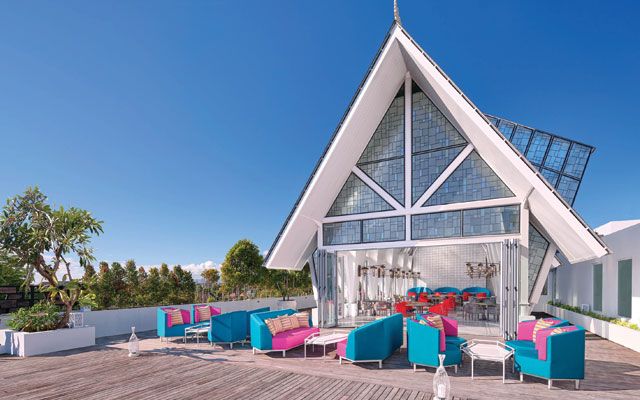
Demonstrating tenacity, Artotel Group’s COO Eduard Rudolf Pangkerego revealed that “all projects will stick to plan”, even as most of Artotel’s partners were consolidating internally to ride out the Covid-19 pandemic.
That said, Eduard acknowledged that delays in construction due to restricted movements and activities as well as closure of businesses as part of health and safety measures will impact project work. Out of six to eight projects this year, Artotel Group hopes to be able to complete at least four by the end of 2020.
Similarly, Santika Indonesia Hotels & Resorts continues to maintain a target of 10 hotel signings and three to five openings this year, with another eight hotels that are slated for operations in 2021 and 2022.
Christy Megawati, business development manager with Horwath HTL, reasoned that ongoing hotel projects are able to continue because financing was secured before the Covid-19 crisis. Developments that are seeking financing now may need to be reassessed.
But with Indonesia’s “strong fundamentals of tourism”, established by a “heavy domestic component” along with a weakened Rupiah that makes the destination attractive to foreigners looking to stretch their dollar, investors will likely find Indonesian hotel projects attractive still, she opined.
What the country has in her favour, according to Armand Steinmeyer, director of business development and investment, Tauzia Hotels, is a hotel sector that is very responsive to market changes. He believes that Indonesia’s continued efforts to welcome foreign investment will pay dividends over time.
“The key message for most investors is that the current crisis has a short- to medium-term impact on business, and real estate is inherently a long-term business,” he remarked. – Tiara Maharani
JAPAN
Japan is seeing strong growth in hotel development at press time, thanks to stable demand from domestic travellers and a continued uptick in international arrivals. Inbound tourism is a core component of the government’s long-term economic growth and regional revitalisation plans, and this brings confidence to the market.
In 2019, there was strong appetite from domestic and overseas investors to increase their hotel footprint. According to financial services firm JLL Japan, hotel operators nationwide expanded the number of chains while real estate companies and developers increased development due to attractive yield targets.
“The availability of strong financing in Japan, at almost zero interest, has firmly supported hotel development activities,” said company spokesperson Megumi Terakado.
Most recent developments are limited-service hotels held under a long-term lease agreement with the operator, thereby reducing risk. These hotels are particularly attractive to small and mid-size developers due to “easier feasibility of cash flow, the rarity of cohesive land in Japan to develop full-service hotels, and the size of investment required,” she explained.
Rapid hotel development is seen in Tokyo, Osaka and Kyoto, where hotel occupancy is 30 to 40 per cent higher than overall Japan’s at 20 per cent, according to JLL.
Meanwhile, rural areas in Japan have been experiencing a boom in resort, boutique and lifestyle hotel developments. These new properties dangle unique experiences to lure travellers.
However, a 2019 report by Mizuho Research Institute warned that price competition is intensifying in the boutique hotel category, where supply is starting to outstrip demand. – Kathryn Wortley
MALAYSIA
The Covid-19 pandemic has sent a chill through Malaysia’s hotels, which will likely see average occupancy rate plunging to around 25.4 per cent for 2020, according to the Malaysian Association of Hotels.
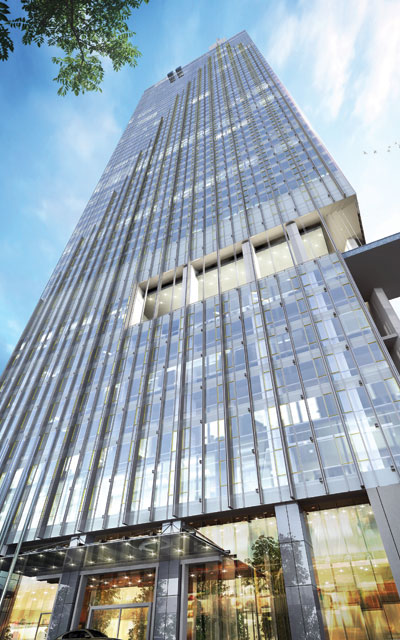
This has presented a worrying situation for hotel owners and developers, with Previndran Singhe, managing director and CEO of Zerin Properties, predicting that those who are unable to sustain their business “will close or sell (off) their properties”.
Previndran opined that stabalisation in the hotel sector might only return a year after the pandemic ends.
At press time, most of Malaysia’s new hotel projects will only come online in 2021. Two hotel brands will debut in Malaysia next year – Conrad Kuala Lumpur with 544 keys and 8 Conlay Kempinski Hotel Kuala Lumpur with 260 rooms and 300 suites are both scheduled to open in 4Q2021.
Four Points by Sheraton Desaru is scheduled to open in February 2021 with 311 keys; Courtyard by Marriott will debut in Penang next July with 199 keys; and Fairfield by Marriott will open its second property in Malaysia early 2021 in Kuala Lumpur with 188 rooms.
Brendan M Wong, director of sales – Malaysia at D-EDGE Hospitality Solutions, said: “It is heartening to see more international brands entering the Malaysian market. Big brands bring with them an international (network) of customers who may not be familiar with Malaysia as a destination.”
Casting his eyes towards the future, Malaysian Association of Hotel Owners executive director, Shaharuddin M Saaid, said demand from the domestic leisure segment could pick up in 1Q2021 but refrained from providing a time frame as to when hotels would return to pre-Covid-19 occupancy levels.
He said: “It would depend on how quickly our major markets recover from the outbreak, when travel restrictions are lifted, and how soon foreign airlines resume their services to Malaysia and domestic airlines rebuild and expand their overseas network.” – S Puvaneswary
PHILIPPINES
Over the last several years, the Philippines had a healthy dose of new hotel developments – branded and homegrown alike – on the back of a growing economy, rising foreign arrivals and huge domestic market of 70 million Filipinos.
“But the Covid-19 fallout will hamper the completion of 6,590 keys (between) 2020 and 2023”, said Tim Hallett, consultant at Philippine property development consultancy NAI RCL.
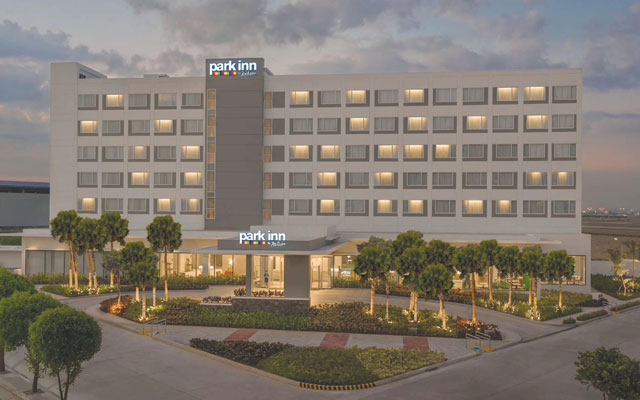
Hallett said in a webinar that “development and project pipeline is officially on hold, with most developers, large and small, furloughing projects until the future has more clarity”.
It remains to be seen whether international brands that have plans to open from this year onwards will continue to do so. According to Colliers International Philippines, these brands include Okura, Movenpick, Mandarin Oriental; Okada Manila, Hilton Clark, among others, are looking to add rooms.
It is also a wait-and-see how successful homegrown brands like Seda and those owned by Filinvest, Rockwell, 8990 Holdings, Eton and Vista Land will spread across metro Manila.
Pre-Covid-19, developers in metro Manila were weaning off saturated CBDs in favour of the fringes and peripheries, near the international airport and Manila Bay MICE area, as well as further north to Ortigas, Pasig, and the untapped Quezon City area.
Outside the metro, groups like Marriott, Hilton and Park Inn By Radisson are expanding in Clark, which has her own international airport and gateway to Pampanga, Zambales, Baguio, Sagada and other tourist and business destinations.
C9 Hotelworks’ managing director, Bill Barnett observed that hotel developers are lured to beach-type locations topped by Cebu, Boracay and Bohol. Aside from Manila, the trio will return to popularity among the country’s top source markets, China and South Korea, when tourism returns. – Rosa Ocampo
SINGAPORE
Singapore’s hotel industry entered 2020 with strong promise, with all sectors posting positive growth following several years of “subdued performance”, shared Giuliano Esposito, senior vice president, strategic advisory & asset management Asia, JLL.
The economy segment grew the most by 4.1 per cent in 2019, followed by luxury at 3.2 per cent, midscale at 3.1 per cent and upscale at 0.6 per cent. This cross-industry growth came as Singapore welcomed more than 1,300 new hotel rooms last year, 60 per cent of which was concentrated in Sentosa.
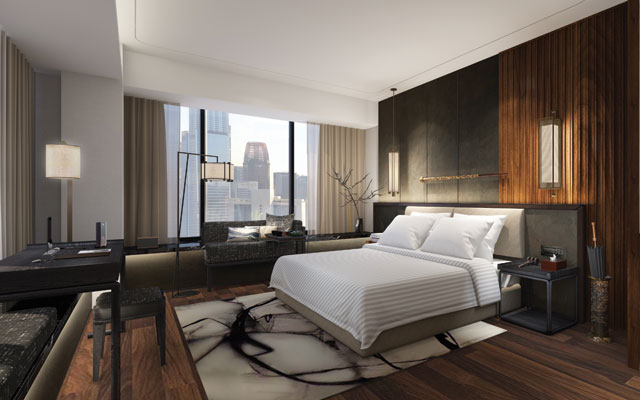
Esposito said: “Prior to Covid-19, we were extremely positive about the growth prospects of the Singapore hotel sector. In terms of hotel supply, we are (now) forecasting limited growth in hotel rooms for 2021 and 2022, which would have allowed the sector to register sustained growth in RevPAR.”
There will now be limited openings in the city-state, with the new additions including Dusit Thani Laguna Singapore, which will open in July, and The Clan Hotel, a Far East Hospitality property that has had its 2Q2020 opening pushed back to November this year.
Esposito remains positive about 2021, stating that more developments will emerge in the upscale and midscale sectors, as well as in the Greater Southern Waterfront and Sentosa redevelopment areas.
The sector is taking measures towards post-pandemic recovery, with JLL working with the owners and operators of nine hotels in Singapore that it currently asset-manages.
“Ultimately, developments will slow due to the fact that the construction industry has come to a standstill. Developers and owners in Singapore are generally well capitalised and have good relationships with banks, so (projects) are likely to progress, just at a slower pace than expected. As the current situation is unprecedented, we are working with owners and operators to start devising different scenarios of recovery, which may involve a complete re-think of target markets,” he shared.
“We still expect Singapore to continue to attract capital into the sector as it has proven to be able to rebound, based on its solid fundamentals. The city is considered a safe haven and we believe that safe haven destinations will likely benefit from the current situation.” – Pamela Chow
THAILAND
Over the past year, many luxury hospitality brands have made or planned their debut in Thailand. In 2019, Thailand welcomed South-east Asia’s first Waldorf Astoria, as well as the country’s first Capella and Rosewood properties.
Bangkok saw further expansions on a slew of mixed-use developments and integrated resorts including ICONSIAM, Mahanakhon Bangkok, the openings of Samyan Mitrtown & Sindhorn Village, and continued construction of One Bangkok (opening 2022).
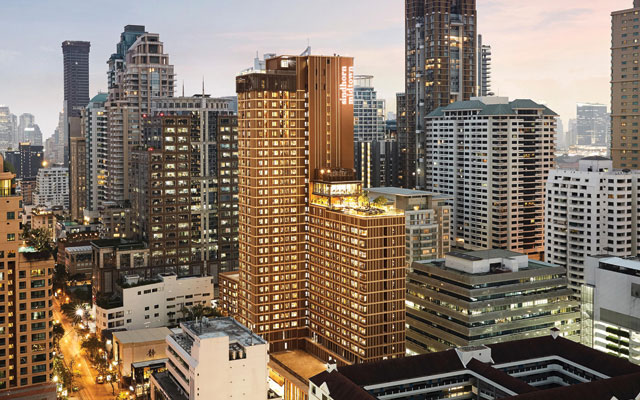
The year 2019 also witnessed the flagship Dusit Thani hotel being torn down to make way for mixed-use project Dusit Central Park (opening 2024).
Pre-Covid-19, JLL data showed Bangkok had a total future supply of 11,420 keys opening between 2020 and 2022 – around 29 per cent in the mid-scale segment, 56 per cent in the upscale segment, and 14.8 per cent in the luxury segment; 5,627 of those (49.2 per cent) were scheduled to open in 2020.
“Thailand on paper has a robust pipeline going into late-2020, but the impact of Covid-19 has seen a failure to launch by new hotels all over the country in both Bangkok and resort markets,” said Bill Barnett, managing director of C9 Hotelworks.
“In 1Q2020 hotels set to soft-open or fully-open made quick decisions to push back on paper at least to 3Q and 4Q. We’d expect this situation to domino and push some scheduled later in 2020 to 2021,” he stated.
While a few hotels such as Villa de Phranakorn and Sindhorn Midtown went ahead with their openings in February and March, respectively, the onset of the pandemic led many hotels in Thailand to shut their doors until May or even June.
Luxury hotels scheduled to open mid-year have been pushed out to 3Q2020 or later; they include Sindhorn Kempinski, Capella Bangkok and Banyan Tree Krabi.
Mahanakorn Orient Express, scheduled to open by end-2020, has been postponed indefinitely.
Commenting on Phuket’s hotel developments, Barnett said the popular resort destination has 24 new hotels and 5,735 keys in the pipeline, and the crisis is hurting mostly hotels in the planning cycle.
“Has the pipeline stopped? Absolutely not, but each and every developer is now rationalising and understanding they need a scale of guests to open. That’s the big question,” said Barnett.
“Projects that are now paused (are the ones) that we see are still in design or pre-development (phase); the ones under construction for the most part are going ahead. If projects are stopping now, it might be related to pre-Covid-19 issues, are under-financed, etc,” he added.
A C9 Hotelworks report released in May 2020 highlighted five new hotels with 1,627 keys in the pipeline for small resort town Hua Hin.
“Noteworthy (for Hua Hin) is a growing long-stay segment that is pushing into the villa rental segment. By location and catchment of key demand generators – wellness and retirement, (Hua Hin’s) markets are poised to grow,” said Barnett. – Anne Somanas
VIETNAM
As one of the few destinations that escaped the full brunt of the Covid-19 pandemic while benefitting from growing travellers’ interest, Vietnam’s hotel landscape has been able to remain strong as major players continue to pump up their presence in the destination.
The island of Phu Quoc has seen substantial investment in recent years as its popularity grows. And it is showing no signs of slowing with a series of hotels slated to open.
The 305-room Mövenpick Resort Waverly Phu Quoc and adjacent Mövenpick Residences Phu Quoc, which comes with 329 apartment-style residences and 79 pool villas, were the latest additions in April.
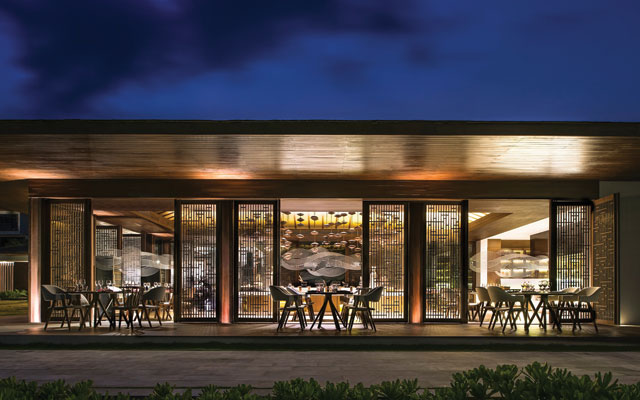
InterContinental Hotels Group’s Regent brand is slated to establish a presence on the island later this year.
Jeff Redl, managing director of Diethelm Travel Vietnam, noted a rise in boutique properties in Hanoi city centre. Redl said there has been a particular focus on four-star properties, which were “missing” in the destination.
He added: “These newly opened properties have paid extra attention to design, which is more in line with the country’ history and culture compared to other properties. Demand was on the rise, especially from European markets. They are travellers who usually love to experience local heritage and look for an authentic atmosphere.”
Coastal development is also on the rise in both established and emerging destinations.
Linh Le, principal and co-founder of Luxperia, said development in emerging destinations is being driven by the local market.
Redl noted the Central Vietnamese coastal city of Quy Nhon is another area where interest for resorts development has recently boomed. Anantara opened a property there last year. Zannier Hotels will open in December and Fusion will follow in 2021. – Marissa Carruthers




















